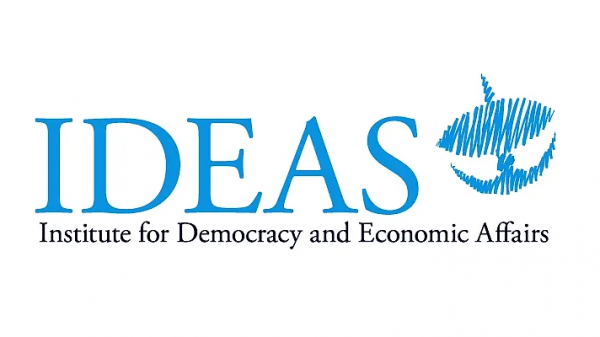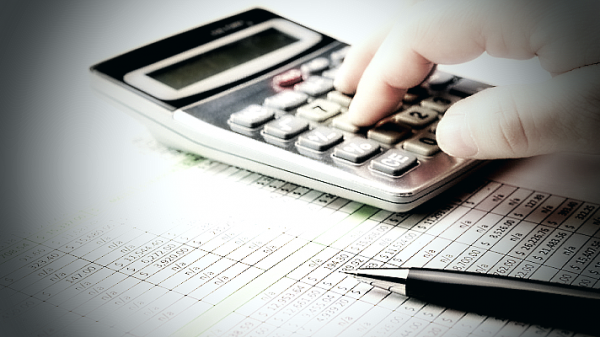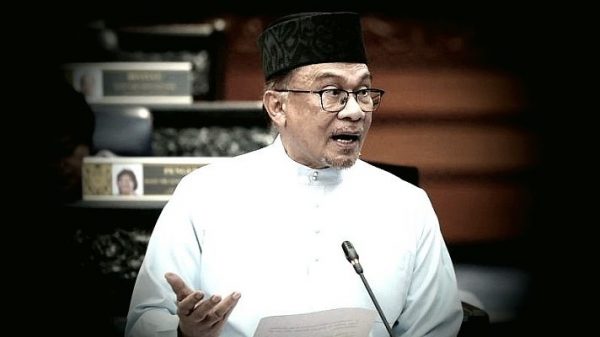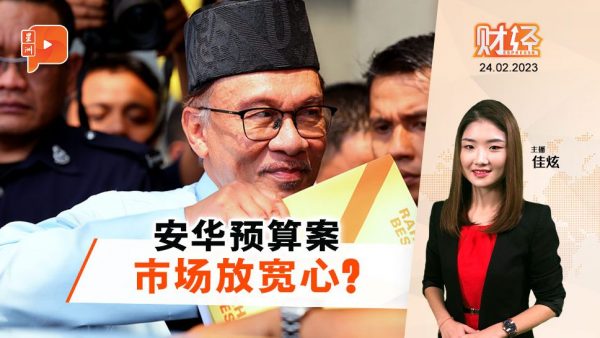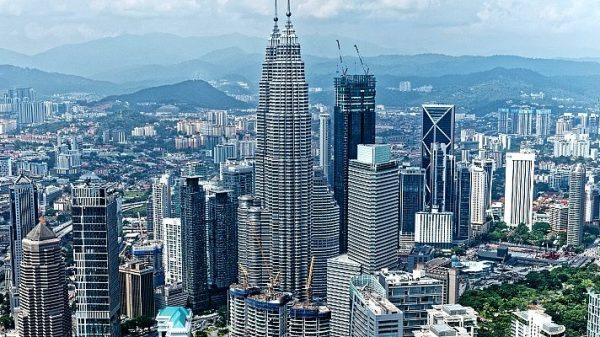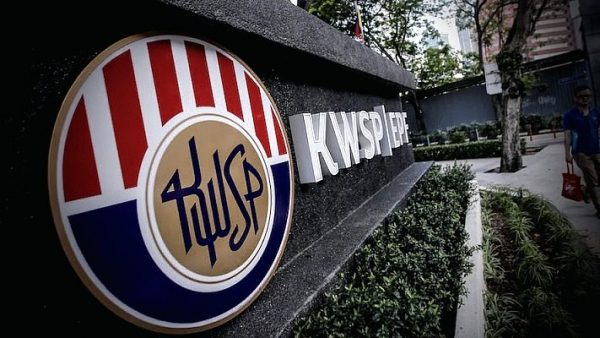KUALA LUMPUR: Budget 2023 is revised upward to RM388.1 billion, making it the largest allocation in Malaysia’s history, as the government continues to provide support to steer the economy, according to the Ministry of Finance (MoF).
The budget allocation is an upward revision from the RM372.3 billion budget tabled by the previous government in October 2022, which could not be passed before Parliament was dissolved.
In its Updates on Economic & Fiscal Outlook and Revenue estimates 2023 report released today, the ministry said of the amount, 74.8 percent will be utilized for operating expenditure while the remaining 25.2 percent is for development expenditure.
A substantial allocation of 23.5 percent will be provided for emoluments, subsidies and social assistance (15.2 percent), economic (14.3 percent), debt service charges (11.9 percent), supplies and services (8.3 percent), retirement charges (8.0 percent), social (6.9 percent), security (3.0 percent), grants and transfers to state governments (2.1 percent), general administration (1.0 percent) and others (5.8 percent).
MoF said funding for Budget 2023 will be sourced from income tax totaling 39.9 percent of the total allocation, borrowings and use of government’s assets (24.5 percent), non-tax revenue (19 percent), indirect tax (14 percent) and other direct tax (2.6 percent).
Prime Minister and Finance Minister Datuk Seri Anwar Ibrahim said Budget 2023 will focus on addressing the high cost of living, further strengthening the social safety net and enhancing the micro, small and medium enterprises (MSMEs) ecosystem.
He said the government will also examine ways and means to reduce market disruptions as well as streamline business processes through the adoption of high technology and digitalization.
“The government is committed to protecting the livelihood of the rakyat, upholding integrity, enhancing a caring and compassionate society, as well as improving the effectiveness of public and private sector delivery systems.
“These commitments can be achieved through a methodical approach focused on the aspect of thought, spirituality and infrastructure, which is centered on the framework of Malaysia Madani that focuses on shaping the future of the nation and realizing its full potential,” he said.
Malaysia Madani framework is supported by six core values — sustainability, prosperity, innovation, respect, trust, and lastly, care and compassion.
After Anwar was sworn in, the Dewan Rakyat had, on Dec 20, 2022, passed a RM163.7 billion temporary operating budget to allow the government to spend a portion of the total estimated expenses during the months prior to the re-tabling and passing of the Supply Bill for 2023.
The amount includes RM107.7 billion, which is from the Consolidated Fund, to pay for emoluments and aid for the first six months of 2023, and RM55.96 billion from the Development Fund to fund the ongoing development projects.
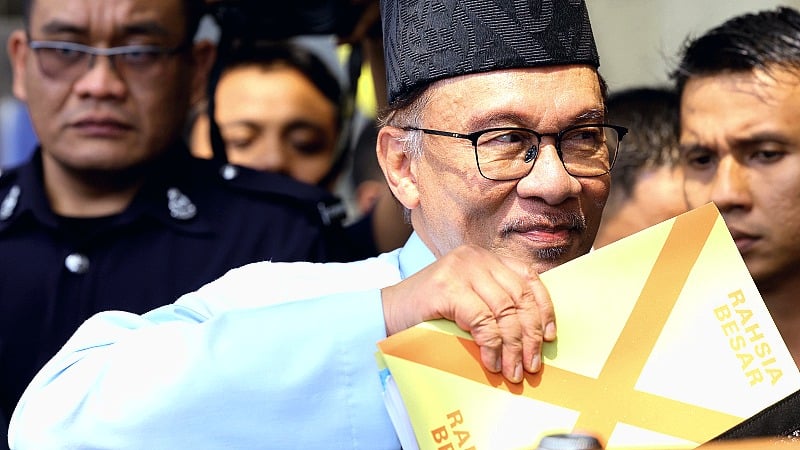
Moderate 2023 GDP growth
Anwar said Malaysia’s gross domestic product (GDP) is poised to record a growth of approximately 4.5 percent in 2023, backed by the nation’s sound macroeconomic fundamentals, robust domestic demand coupled with the effective implementation of the 12th Malaysia Plan (12MP).
With the transition to the endemic phase and the reopening of international borders, Malaysia has seen an increase in tourist arrivals as well as trade and business activities, contributing towards a steady recovery, especially in the services sector, he said.
“2023 is expected to be a challenging year. The government will continue to be vigilant of economic headwinds as well as any potential geopolitical conflict in order to devise the appropriate strategies and actions,” the Prime Minister said.
The report indicated that the services sector will continue to steer growth in 2023, expanding by 5.3 percent on the back of better domestic demand buoyed by wholesale and retail trade, transportation and storage, information and communication, food and beverages and accommodation, and finance and insurance subsectors.
Anwar also said the government remains steadfast in balancing the need to safeguard the well-being of the rakyat and the nation while ensuring a sound and sustainable fiscal position.
This is crucial in maintaining the high standing of the country’s sovereign ratings and to ensure the country’s premier position as an investor- and business-friendly country, especially in creating and attracting high value-added investments to achieve quality and inclusive growth, he said.
MoF said the acceleration of infrastructure projects with high multiplier effects, robust growth in private investment and continuous external demand particularly among major trading partners will further support the economy.
It also said the contribution of the tourism-related sector is expected to improve following an increase in tourist arrivals.
“Looking ahead, efforts will be intensified to position Malaysia as a major investment destination. Various measures will be implemented to uplift and enhance the economic potential for Malaysia to become more competitive, sustainable and inclusive,” it said.
It added that the government will continue to provide counter-cyclical policy support as well as expedite structural reforms to strengthen the country’s growth prospects and resilience.
As for trade, the total trade is expected to expand further to RM2.887 trillion in 2023, with an estimated surplus of RM264.33 billion.
Strict fiscal discipline
Anwar said the government will prioritize strengthening the governance ecosystem at all levels to increase public trust in government institutions.
This initiative will focus on transparency, integrity and efficiency, particularly in government procurement, good governance, and the developmental role of government-linked companies (GLCs) and parliamentary institutions, he said.
He also said various initiatives have been identified to address issues related to public finances, including exploring new sources of sustainable revenue and minimizing leakages.
“In achieving these initiatives, the government will prioritize public expenditure review while ensuring debt sustainability and enhancing public spending efficiency in the long run.
“These measures will improve the nation’s fiscal flexibility, allowing the government to implement counter-cyclical measures and maintain our economic resilience,” he said.
According to MoF, the fiscal deficit is expected to consolidate further to 5.0 percent of GDP, to -RM93.94 billion from -RM99.48 billion in 2022.
Stellar 2022 performance
Despite the softened global growth and escalating inflationary pressure, the Malaysian economy has performed better-than-expected in 2022, spearheaded by strong domestic demand and higher export performance in the aftermath of the COVID-19 pandemic.
Anwar said the country’s economic growth outperformed regional and global trends, rebounding to the pre-crisis level of 8.7 percent, thanks to the swift policy responses and strong economic fundamentals.
MoF said in the report that growth in 2022 was anchored by the services sector, which grew by 10.9 percent and contributed 58.2 percent share to the GDP, mainly supported by the wholesale and retail trade, transportation and storage, as well as real estate and business services sub-sectors.
It said the manufacturing sector grew by 8.1 percent with 24.2 percent contribution to the GDP, while agriculture (0.1 percent/6.6 percent), mining (3.4 percent/6.4 percent), and construction (5.0 percent/3.5 percent).
The growth was also attributed to robust external demand, especially among Malaysia’s major trading partners, which resulted in a 27.8 percent increment to RM2.848 trillion total trade last year. Similarly, the trade surplus expanded by 0.6 percent to RM255.1 billion.
ADVERTISEMENT
ADVERTISEMENT






